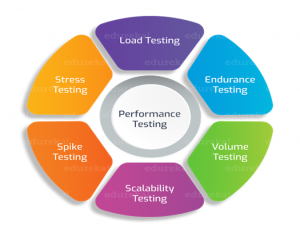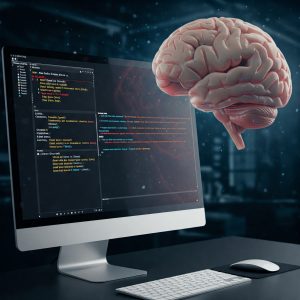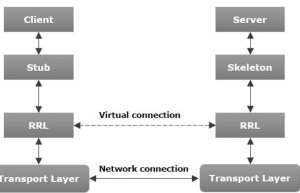BCA Seventh semester subjects notes list cick on title to download or view:
- Cyber Law and Professional Ethics
- Cloud Computing
- Internships
- ElectiveI
- Elective II

Elective I & Elective II Subject List
– Image Processing (CACS404)
– Database Administration (CACS405)
– Network Administration (CACS406)
– Software Project Management (CACS407)
– Advanced .Net Technology (CACS408)
– E-Governance (CACS409)
– Artificial Intelligence (CACS410)
BCA Seventh Semester Subject TU Notes
The BCA Seventh Semester under Tribhuvan University (TU) is one of the most important semesters in the BCA curriculum. This semester focuses on advanced computing technologies, legal aspects of IT, cloud computing, and professional experience through internships. Additionally, students can choose elective subjects based on their career interests.
This article provides detailed BCA Seventh Semester Subject TU Notes, covering the following subjects:
- Cyber Law and Professional Ethics
- Cloud Computing
- Internships
- Elective I
- Elective II
We will also discuss the elective subject options and their importance.
1. Cyber Law and Professional Ethics
1.1 Introduction to Cyber Law
Cyber Law deals with the legal aspects of the internet, digital transactions, and cybersecurity. It ensures that online activities are regulated and protected under legal frameworks.
1.1.1 Key Topics in Cyber Law
- Introduction to Cyber Law – Definition, scope, and importance
- IT Act & Legal Frameworks – Laws governing digital transactions
- Cybercrimes – Hacking, Phishing, Identity Theft, Cyber Terrorism
- Intellectual Property Rights (IPR) in IT – Copyright, Patents, Trademarks
- Data Protection & Privacy Laws – GDPR, IT Act in Nepal
1.2 Professional Ethics in IT
Professional ethics ensures that IT professionals follow ethical guidelines in their work.
1.2.1 Key Topics in Professional Ethics
- Ethical Theories in IT – Utilitarianism, Deontology, Virtue Ethics
- Code of Conduct for IT Professionals – ACM & IEEE Guidelines
- Privacy & Security Ethics – Ethical handling of user data
- Software Piracy & Ethical Hacking – Legal vs. illegal hacking
Understanding cyber laws and professional ethics helps IT professionals work responsibly and legally in the industry.
2. Cloud Computing
Cloud Computing is a technology that allows users to access computing resources (servers, storage, databases) over the internet instead of on-premises infrastructure.
2.1 Key Topics in Cloud Computing
- Introduction to Cloud Computing – Definition, characteristics, and benefits
- Cloud Service Models – IaaS, PaaS, SaaS
- Cloud Deployment Models – Public, Private, Hybrid, Community Cloud
- Virtualization in Cloud Computing – Hypervisors, Virtual Machines
- Security in Cloud Computing – Data encryption, Multi-factor authentication
- Cloud Platforms & Providers – AWS, Azure, Google Cloud
Cloud computing is essential for modern IT industries, as it enables scalability, cost efficiency, and flexibility in computing resources.
3. Internships
3.1 Importance of Internships in BCA
Internships provide real-world industry experience for students and help them develop practical skills.
3.1.1 Key Aspects of Internships
- Finding an Internship – IT companies, startups, freelancing
- Skills Development – Programming, Networking, Database Management
- Project Work in Internship – Developing real-world applications
- Internship Report & Presentation – Documenting the experience
Internships improve students’ job readiness and increase their chances of getting full-time employment after graduation.
4. Elective I & Elective II
In the seventh semester, students must choose two elective subjects based on their interests and career goals.
4.1 List of Elective Subjects
- Image Processing (CACS404)
- Database Administration (CACS405)
- Network Administration (CACS406)
- Software Project Management (CACS407)
- Advanced .Net Technology (CACS408)
- E-Governance (CACS409)
- Artificial Intelligence (CACS410)
Let’s explore these elective subjects in detail.
4.2 Image Processing (CACS404)
Image Processing involves analyzing, enhancing, and manipulating digital images using algorithms.
4.2.1 Key Topics in Image Processing
- Fundamentals of Digital Image Processing
- Image Enhancement Techniques – Filtering, Histogram Equalization
- Edge Detection Algorithms – Sobel, Prewitt, Canny
- Image Compression Techniques – JPEG, PNG
This subject is useful for careers in computer vision, AI, and multimedia applications.
4.3 Database Administration (CACS405)
Database Administration focuses on managing, securing, and optimizing databases.
4.3.1 Key Topics in Database Administration
- Database Security & User Management
- Backup & Recovery Strategies
- SQL Query Optimization
- Database Replication & Clustering
Database administrators play a crucial role in data management and security in organizations.
4.4 Network Administration (CACS406)
Network Administration deals with configuring, managing, and securing networks.
4.4.1 Key Topics in Network Administration
- Network Configuration & Troubleshooting
- Routing & Switching – Cisco, Juniper
- Firewall & Network Security
- Wireless Networking – WiFi, 5G
This subject is ideal for students interested in network security, system administration, and IT infrastructure management.
4.5 Software Project Management (CACS407)
This subject teaches techniques for managing software development projects efficiently.
4.5.1 Key Topics in Software Project Management
- Project Planning & Scheduling
- Agile & Scrum Methodologies
- Risk Management in Software Development
- Quality Assurance & Testing
Project managers ensure software development projects are delivered on time and meet client requirements.
4.6 Advanced .Net Technology (CACS408)
This subject focuses on advanced programming concepts in the .NET framework.
4.6.1 Key Topics in Advanced .Net Technology
- ASP.NET MVC & Web API
- Entity Framework & LINQ
- WPF & Windows Application Development
This elective is beneficial for students aiming for a career in enterprise application development.
4.7 E-Governance (CACS409)
E-Governance deals with using technology to improve government services and operations.
4.7.1 Key Topics in E-Governance
- E-Governance Models – G2C, G2B, G2G
- Digital Government Services – E-Tax, E-Voting
- Cybersecurity in E-Governance
This subject is useful for careers in public sector IT and digital transformation.
4.8 Artificial Intelligence (CACS410)
Artificial Intelligence focuses on developing systems that mimic human intelligence.
4.8.1 Key Topics in Artificial Intelligence
- Machine Learning & Neural Networks
- Natural Language Processing (NLP)
- AI in Robotics & Automation
AI is one of the fastest-growing fields, with applications in healthcare, finance, and robotics.
5. Career Opportunities After BCA Seventh Semester
After completing the seventh semester, students can explore careers in:
- Cyber Law Consultant – Handling IT legal cases
- Cloud Engineer – Managing cloud platforms like AWS, Azure
- Software Project Manager – Leading software development projects
- Database Administrator – Managing enterprise databases
- Network Engineer – Securing and maintaining IT networks
- AI Engineer – Developing AI-driven applications
Internships and elective subjects help students specialize in their chosen field.




